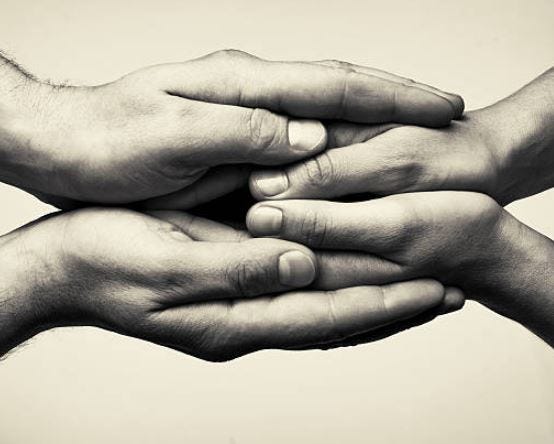Parents: Honor Life Ended

Naomi is a mother and photographer in Martinsburg, West Virginia, where she and her husband are church planters and founding members of Trinity Reformed Church (CREC).

“But now Christ is risen from the dead, and has become the firstfruits of those who have fallen asleep. For since by man came death, by Man also came the resurrection of the dead. For as in Adam all die, even so in Christ all shall be made alive. But each one in his own order: Christ the firstfruits, afterward those who are Christ’s at His coming. Then comes the end, when He delivers the kingdom to God the Father, when He puts an end to all rule and all authority and power. For He must reign till He has put all enemies under His feet. The last enemy that will be destroyed is death.” (1 Corinthians 15:20-26)
Our Bridegroom is a man of sorrows, acquainted with grief. His creation is, after all, tainted throughout by the great grief-giver: death.
Yet though we are confined to that same tainted creation, grief is uncomfortable and foreign to many of us. Grief is impolite and something to be shushed. But grief isn’t an error that has escaped the eye of our Creator. It’s not by itself a trespass to be forgiven.
Grief is a reasonable response to a glorious creation having been made leprous by sin and death. The resurrection is the central hope of the people of God because death surrounds us — and it is an enemy. It’s not a misunderstood friend. It’s not neutral.
And it’s not something to ignore. We think that, by ignoring it, we’re stripping it of its power, like looking the other way when a child throws a temper tantrum. But death is much bigger than that. Death is a miasma creeping through every crack it can find, seeking out life to strangle. Death is a mass murderer. By ignoring it, we let it continue to seek out victims.
When we ignore death, when we pretend the enemy doesn’t exist, we rob the thing we want to protect from it – Life – of significance. Why continue to wave the banner of our Victory, if we’ve stopped hating the thing we’re fighting against — if we’ve even tried making friends with it by banishing tears and dirges?
Our own children are often the first to be ignored when death creeps in. Even in the majority of American churches, miscarriage and stillbirth are pests at which we aim a tranquilizer dart. It’s well and good to speak of missing your spouse years later, but we think a mother who’s lost an unborn child really ought to be at peace after three or four casseroles. If we not only dig a grave for an insignificantly tiny being, but ask others to come and mourn as well, we’re dismissed for being histrionic.
Do we believe we’ve lost a human being? Of course we do. The mother certainly believes it. The shame she feels after losing a child doesn’t come from questioning whether she was carrying a real human. She felt her kicks; she saw her little heart beat; she’d picked out her name, or had at least begun calling her “little one.” She’ll lie awake afterwards, wringing her hands, praying that God had kept her tiny child from feeling any pain.
No, the shame isn’t a doubt of personhood. The shame women feel after having that life snatched from her is twofold: first, her own house of life — her womb — has been turned into a den of death. Decay has entered the very life of the mother. No amount of water will wash away the feeling of leprosy. It only adds to that very natural feeling of uncleanness when those around her wish she would stop looking so traumatized already. They never met this person they’re being asked to mourn for. There is often no closure and little hope after stillbirth because, though the mother’s pain lingers, her child has been swiftly brushed under the rug.
What are we saying we believe about these babies by the way we treat their passing and by the way we handle their delicate bodies?
My husband and I recently visited with a friend whose household has suffered three miscarriages over the years. One was delivered at a Franciscan hospital whose policy was to bury all miscarried children in a designated section of their own graveyard under the epitaph: “Unto such as these belongs the kingdom of heaven.”
Another friend has lost seven and has a garden of babes in her yard, patiently waiting to bloom forth in glorious resurrection. My own child is buried in a graveyard on the other side of the country, in a tidy little row of lost children, planted like delicate bluebells awaiting Spring.
Burial has long been a requisite element of grief. Acknowledging and mourning the loss, committing our loved one back to her Creator, reminding ourselves of the One in Whom our hope lies, and preparing the departed for future resurrection: buried, intact, in the ground (or in a tomb) where the sleeping saint waits to be awakened.
Of course, God doesn’t need our babies — or our adults, for that matter — to be buried in a tidy plot in order to resurrect them. He can refashion a man from ashes scattered across the sea floor (perhaps on that day the shores will be overrun by legions of glorified bodies — a triumph more terrifying than the sight of Jonah crawling out of the sea and onto the shore of Nineveh).
But the way we bury our dead says something about the hope we hold for them. And the way we bury our own stillborn children testifies not only to that future hope, but to a present reality: these small beings are created in the image of God, just as much as if they had lived 95 years longer. We’re not ashamed to grieve over them, and the people of God are pleased to grieve with us. When we pass over the ceremony of burial, we often get stuck in the mire of grief, with the way of hope obscured by smog. We can still reach hope, but we’ll need to drudge farther to get close enough to see it clearly.
I sometimes have occasion to comfort newly-grieving mothers. After reminding them of their resurrection hope, my counsel is always the same: If you are able, please consider burying your child (however humbly) and asking your pastor to officiate the burial. Invite as many or as few people as you’d like — but don’t feel ashamed that your child is only ten weeks. Don’t be ashamed that this is the fifth one you’ve lost. Let others mourn with you. Invite others to see death as an enemy, of which your child, though small, is no insignificant victim. Don’t let shame choke out your hope. Grieve, hate death, and thank Christ that He is going to destroy it.
Heaven cradles countless babes whose first sight of daylight will be at the resurrection of the dead. Plant them well, to testify to the world — and to preach to yourself — that you cling tightly to the hope of that day.
“Arise, shine; for thy light is come, and the glory of the Lord is risen upon thee.” (Isaiah 60:1)
Reposted by permission from Theopolis Institute
The post Parents: Honor Life Ended appeared first on Kuyperian Commentary.

